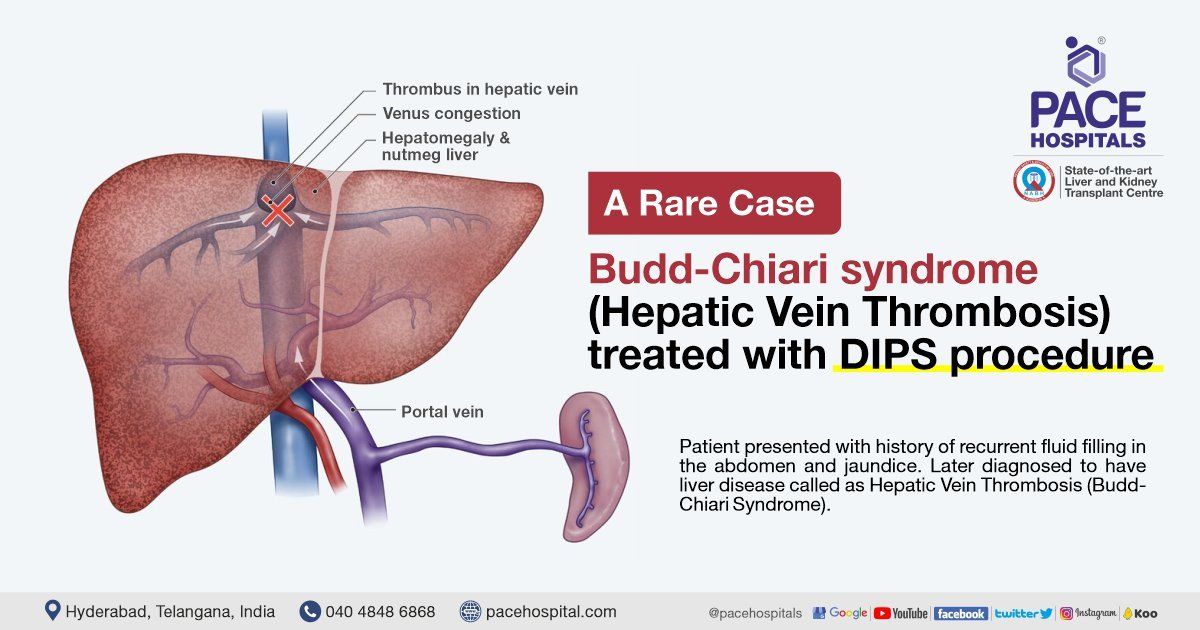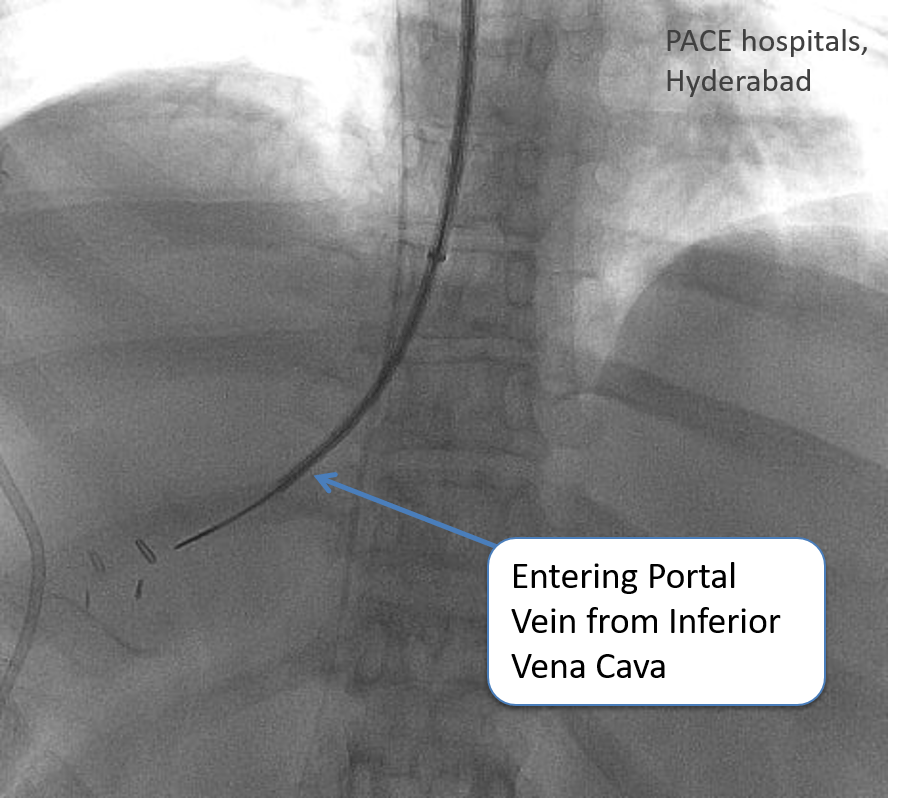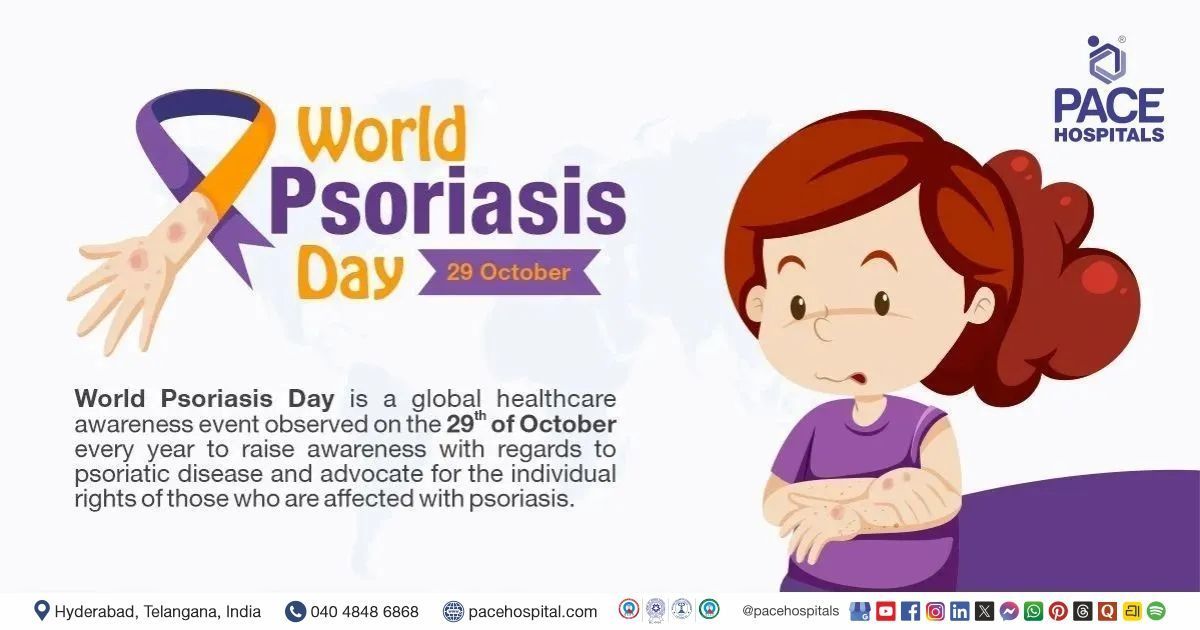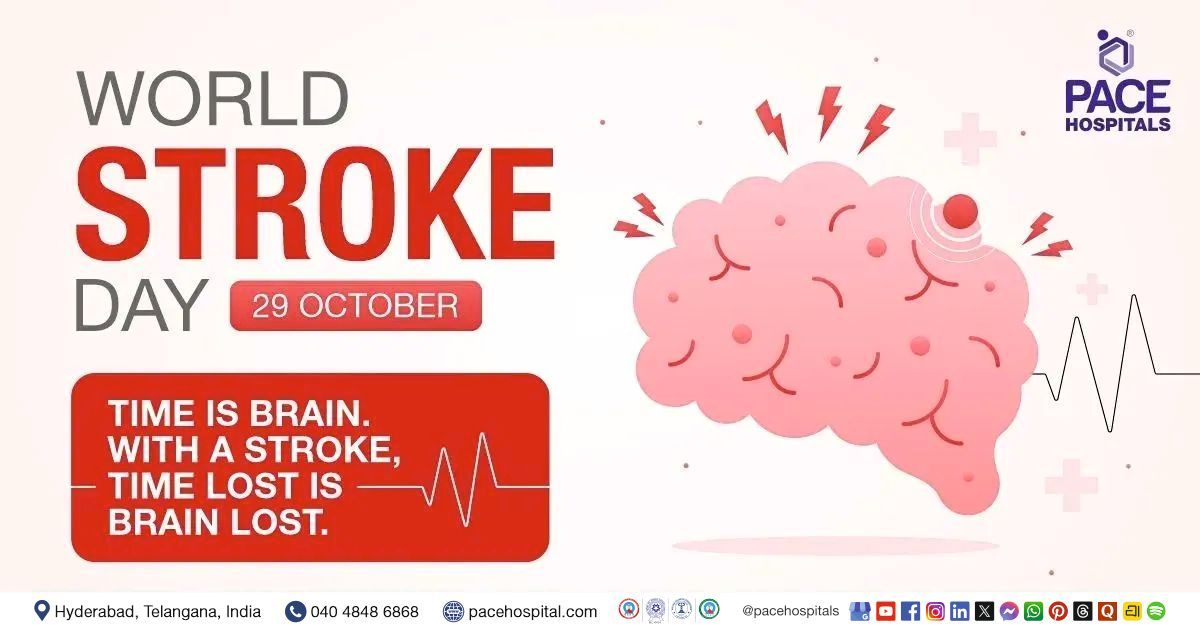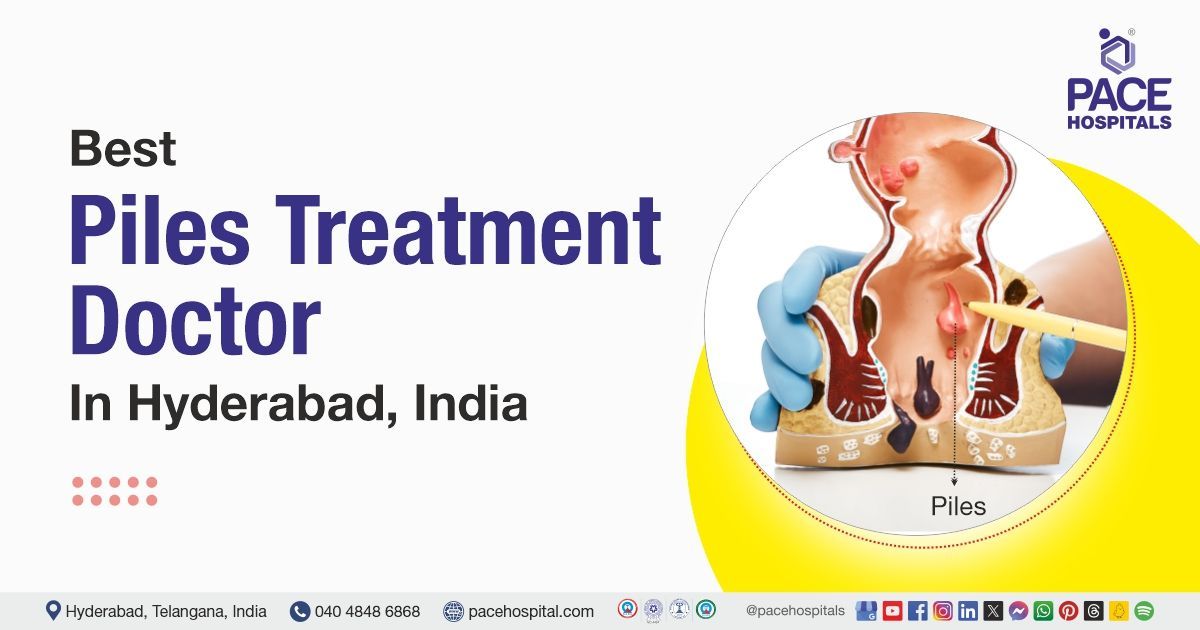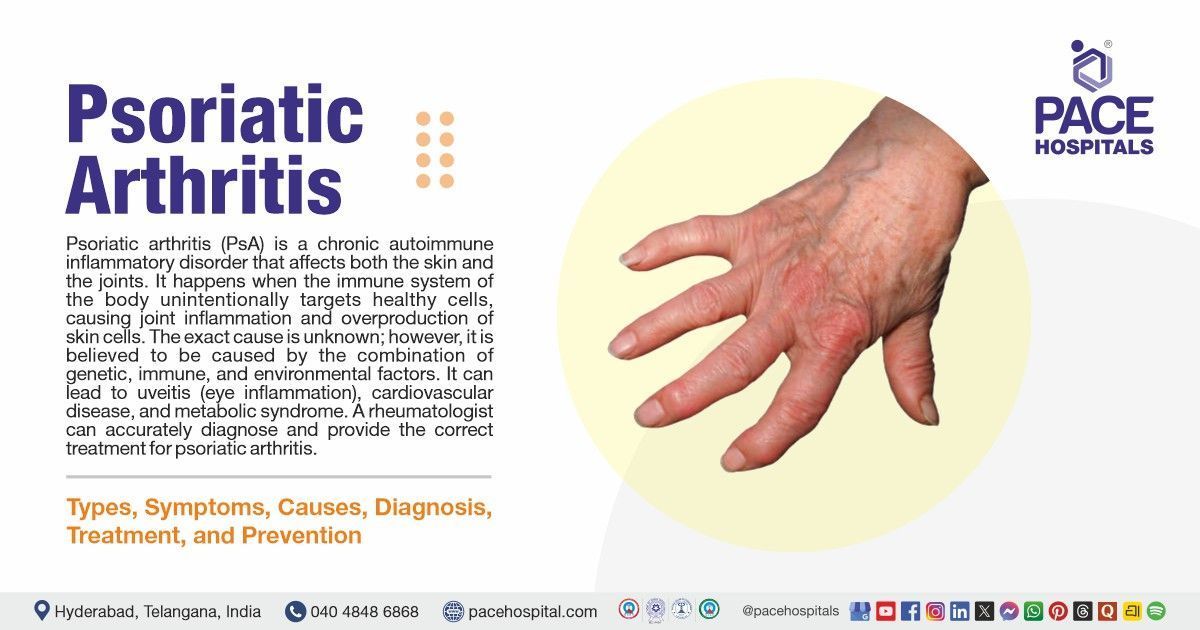Budd-Chiari syndrome (Hepatic Vein Thrombosis) treated with DIPS procedure
A 45-year-old female presented with a history of recurrent fluid filling in the abdomen and jaundice. She was diagnosed to have liver disease. She had to undergo repeated painful procedures of removal of fluid from the abdomen, which required multiple hospitalizations.
Although she was evaluated at various other hospitals, her exact cause of liver disease and recurrent fluid filling in the abdomen is not diagnosed. In PACE Hospitals we were able to diagnose the condition as Budd-Chiari syndrome.
The patient normal liver veins which carry the blood back to the heart were all blocked. Due to the blockage of these veins venous pressure in the liver and abdominal veins increased leading to liver disease and repeated fluid accumulation in the abdomen.
So to treat this condition, we did an interventional radiology procedure called Direct Intrahepatic Portosystemic Shunt (DIPS).
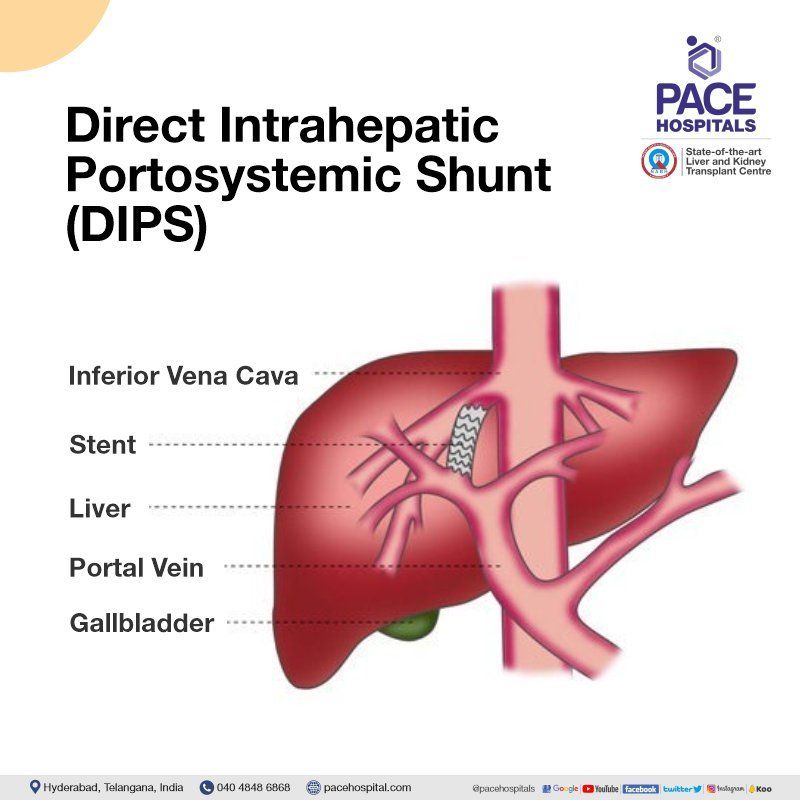
DIPS or TIPS (Transjugular Intrahepatic Portosystemic Shunt) is considered as one of the most difficult interventional radiology procedure. It is performed in only a handful of centers in India.
Dr. Lakshmi Kumar Chalamarla,
who is specially trained in liver related interventional radiology procedures, could accomplish this task in just 30 minutes. We also have the
Philips Azurion Cath Lab
- the next generation image-guided therapy platform and other equipment to perform these procedures.
DIPS Procedure - images
Post procedure, the patient’s complaints of fluid filling in the abdomen decreased and there is no need of fluid removal from the abdomen now. Her liver condition also improved, which increases her life span and also postpones or avoids the need for liver transplantation.
What is Budd-Chiari syndrome?
Budd-Chiari syndrome is a condition in which the outflow of blood from liver is obstructed. The obstruction can be due to clotting in smaller veins (hepatic veins) or larger vein (inferior vena cava). The stagnant blood in the liver causes liver cell damage.
What are the causes of Budd-Chiari syndrome?
Budd-Chiari Syndrome is more commonly seen in patients who are prone to clotting of blood due to certain blood disorders like myeloproliferative disorders, polycythaemia or sickle cell anaemia. Pregnancy and oral contraceptive pills usage are also risk factors. Other causes are webs in inferior vena cava (which is a large vein that carries blood from legs and lower body to the heart), trauma, infections, and other rare diseases.
What are the symptoms of Budd-Chiari syndrome?
This presents with symptoms like
- abdominal pain
- abdominal fullness (due to fluid accumulation)
- jaundice (yellowish discoloration of eyes)
- blood vomiting
- black colored stools
- swelling of legs
- altered mental state
How is Budd-Chiari syndrome diagnosed?
Budd-Chiari syndrome is diagnosed using imaging techniques like Ultrasound Doppler, CT venogram or MR venogram. Underlying blood disorders are diagnosed by doing blood tests. The extent of liver damage is assessed by biopsy or by testing liver elasticity or by estimating the pressure in liver veins.
How is Budd-Chiari syndrome treated?
If Budd-Chiari syndrome is detected early, medicines to break the clots can be used for treatment. But most of the time this is detected late. These patients can be treated with interventional radiology techniques. These techniques include opening the blocked vein using balloon (angioplasty) or stent. In patients with veins not amenable for opening, TIPS procedure can be done. In this procedure, a new outflow to liver blood is created by bridging the inflow vessel (portal vein) and the inferior vena cava.
In patients with very severe acute disease or very late disease with permanent liver cell damage liver transplantation is the treatment offered.
What is the prognosis of Budd-Chiari syndrome?
It depends upon the time of detection. Prognosis is better for those detected early before severe liver damage.
How to prevent Budd-Chiari syndrome?
Early detection of blood disorders and their close monitoring is the best possible way to prevent this condition
Share on
Request an appointment
Fill in the appointment form or call us instantly to book a confirmed appointment with our super specialist at 04048486868

